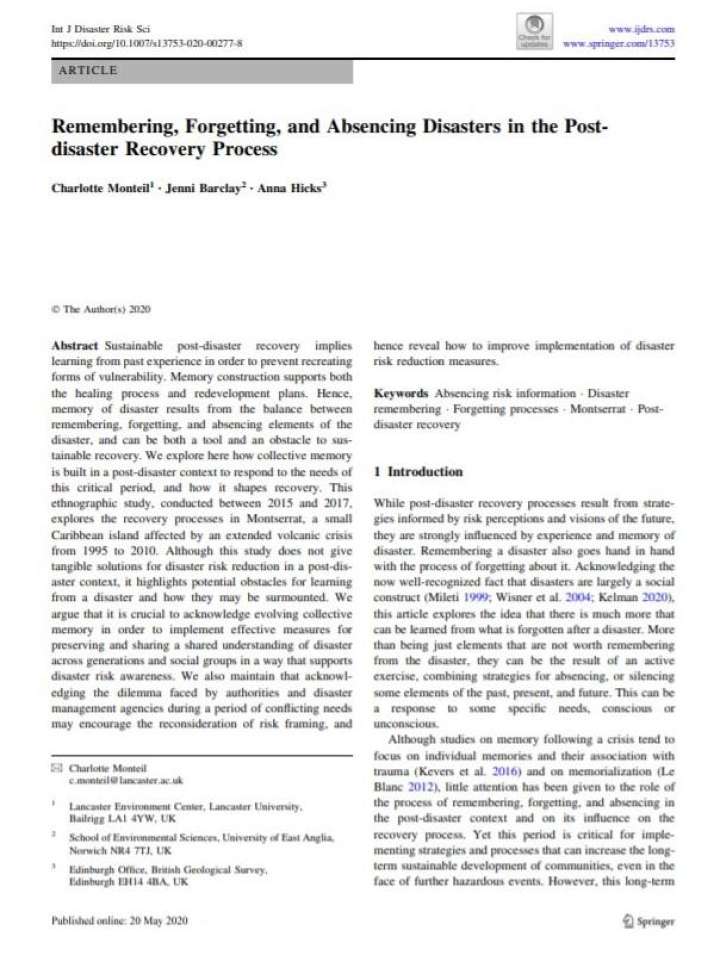Remembering, forgetting, and absencing disasters in the post-disaster recovery process
Sustainable post-disaster recovery implies learning from past experience in order to prevent recreating forms of vulnerability. Memory construction supports both the healing process and redevelopment plans. Hence, memory of disaster results from the balance between remembering, forgetting, and absencing elements of the disaster, and can be both a tool and an obstacle to sustainable recovery. This ethnographic study, conducted between 2015 and 2017, explores the recovery processes in Montserrat, a small Caribbean island affected by an extended volcanic crisis from 1995 to 2010.
Although this study does not give tangible solutions for disaster risk reduction in a post-disaster context, it highlights potential obstacles for learning from a disaster and how they may be surmounted. It is crucial to acknowledge evolving collective memory in order to implement effective measures for preserving and sharing a shared understanding of disaster across generations and social groups in a way that supports disaster risk awareness.
Explore further
